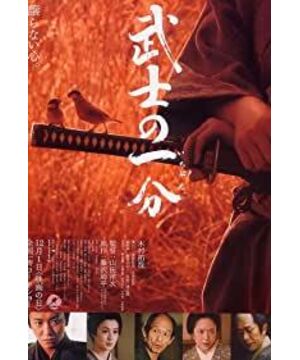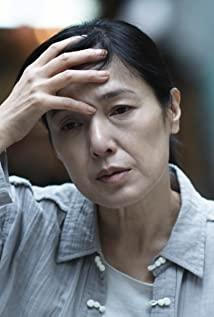Akira Kurosawa is full of heroism. He yearns for the warriors of the Warring States Period, who are full of blood and dare to kill. Unsurprisingly, often because of sudden changes, it is impossible to make ends meet, and life is in a desperate situation.
"Twilight Seibei" and "Samurai's One Point" describe two such samurai. Watching these two films, I actually felt a little pity for a group of samurai warriors who are addicted to martial arts. Perhaps from them, I found the human nature behind the glorious image of loyalty and martial arts. These human natures are also the moral code of warriors. The Chinese Institute tries its best to obliterate what has been wiped out, simply because human nature is contrary to absolute loyalty.
The two protagonists challenged their fate in their own way. One died in a heroic battle. From the narrative of the movie, we can speculate that such a death in battle was not what the samurai wanted. He cared more about his family and children; After a strong enemy, he brought his wife to give up his status as a samurai and returned to the farmland; both of these choices stemmed from the betrayal of the moral concept of absolute loyalty. For a lord who was indifferent and ruthless, even after serving for a lifetime, the loyal object of the lower-level samurai appeared to be Misty and helpless, he only gets a little moral comfort and a sense of honor from his ancestors' battles with the lord's ancestors.
The situation of the two samurai is more in line with the situation of modern people who are underappreciated by talent. In a hereditary society, one's background often gives a ceiling to personal development, and those who lack a hereditary background will not be able to surpass it, no matter how talented you are. The two samurai were outstanding in martial arts, but in the Edo period, superb martial arts could not bring promotion, and those who kept their own way often encountered unexpected events. This was almost the same fate for the middle and lower classes living in a hereditary society, and samurai could not escape. .
The plots of the two films are also in line with the Japanese aesthetic tastes. From forbearance to suddenness, the limit of patience will inevitably lead to the most brilliant sparks. The film does not need too many fancy fights. Everything comes naturally and is convincing. Those who understand samurai culture and have a patient audience, these 2 films will be the best choice.
View more about Love and Honor reviews











